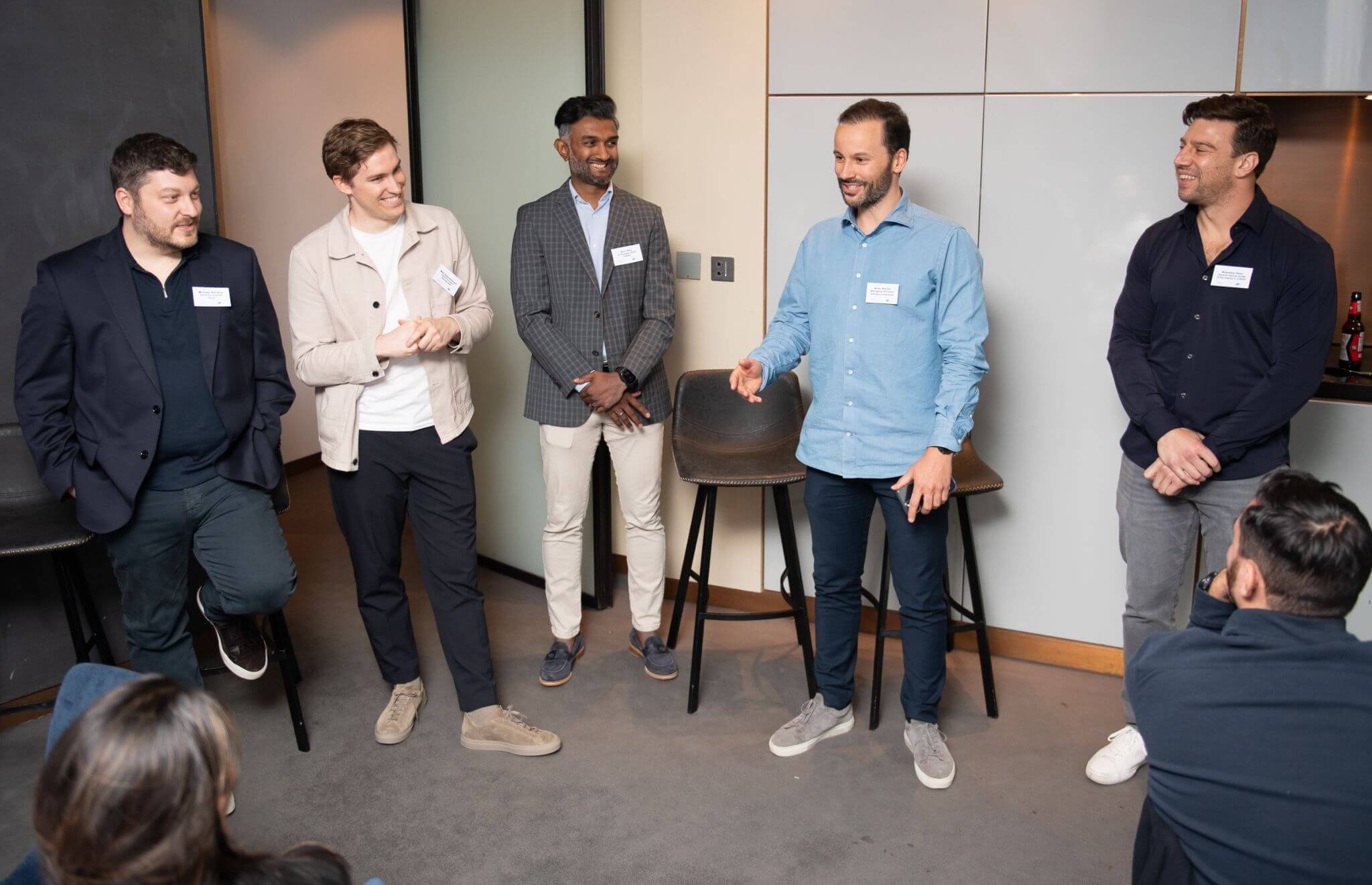This summer, we at Crew Capital co-hosted a dinner with Seedcamp in London with 50 European founders. As part of the event, Carlos Espinal, Managing Partner at Seedcamp, led a fireside chat with Daniel Dines and Brandon Deer, Crew Capital’s co-founders. They discussed the genesis and evolution of UiPath, how Daniel’s founding experience shaped him as a leader, and shared lessons for early stage entrepreneurs.
Below we share some of the highlights from the conversation.

It all begins with an MVP
Today UiPath is a $1B+ annual recurring revenue business with 10,000+ customers and a broad product suite that firmly established the company as the leading provider of enterprise automation software. But it emerged from humble beginnings when Daniel was thinking about how to extract text from any application. Daniel felt unfulfilled at his job at Microsoft at the time. As someone who had supported himself alone since his teens, Daniel was an entrepreneur at heart, and someone with a desire to solve problems, think big, and most importantly, build products. The first product Daniel built was a dictionary desktop app to extract any word which then would prompt a pop-up to search the web for information about the word.
After evolving over the subsequent years into a broader RPA tool, the company got a call from a client who said that they needed a piece of software that reads the text from the screen, and that they were unhappy with their existing RPA vendor. Daniel realized this was something his team would be able to provide. This experience was the first time when he realized that they were solving potentially big problems for companies, which meant potentially big contracts.
Convey with clarity
As an engineer, Daniel understood little about marketing in the early days of UiPath. Studying the subject and iterating on the company’s approach over time, Daniel came to understand the power of simplicity. He realized that clear messaging is essential for effectively communicating product vision, building trust with employees, and engaging customers.

Embrace learning
Founders should develop their knowledge of company-building across disciplines, from legal and compliance, to sales and marketing. Daniel expanded upon the previously mentioned priority he put on understanding sales and marketing, and discussed the importance of understanding legal dynamics around contracts. Whether financing term sheets, employment contracts, or customer documents, founders can bring meaningful benefit to themselves and their company by being well-versed in the legal documents that matter to their business.
Iterate on pricing
Pricing software can be challenging. In theory, founders should seek to align their pricing to the value they unlock for customers. For startups, the amount of value being delivered to customers can be opaque. Through speaking with customers, building a deep understanding for customer problems, and experimenting with different pricing models, this process can be improved. In the earliest days of UiPath, Daniel was unclear how to price their automation service. Through many customer discussions and repeated restructuring of pricing, it became clear that UiPath had been meaningfully undercharging its early customers relative to the value the company delivered. Daniel observed that many customers were happy to pay multiples higher than what he would have initially expected. He talks about a common ailment that many high-achieving individuals suffer from: imposter syndrome. Pricing should be determined by the value it unlocks for the customer, but the challenge is putting a dollar price on that value. For this reason, pricing should always increase until you meet resistance.

Hire with intent
A key lesson Daniel and Brandon learned in building UiPath was to focus on hiring people who fit the company’s culture with chemistry and passion, beyond hiring purely for skills. Focusing on ensuring cultural fit will help ensure that a startup’s culture scales with the company as it grows. Of course this is easier said than done, to which Daniel suggested a framework to find those who showcase ambitions beyond climbing the corporate ladder with a focus on impact.
The virtues of lacking a parachute
In founding UiPath, Daniel had no back-up plan should the company fail. Many founders find themselves with the option to start their company as a side hustle, while maintaining a separate full-time job. While this can be a way to de-risk their idea, Daniel’s belief is that constraints can breed creativity. Having no back-up plan can be a forcing function for founders to test their limits, leading to key learnings they may not otherwise develop.

Excellence in leadership
Daniel and Brandon discussed their belief that leadership in startups is defined by establishing boundaries, operating with clarity, and building teams with personal chemistry. A lack of boundaries can lead to chaos, but boundaries should not be so restrictive as to kill creativity. Therefore they must be conveyed with great clarity and empathy. With clear boundaries, feedback becomes easier to communicate, and founders will ultimately be able to delegate greater autonomy to their executive team.









